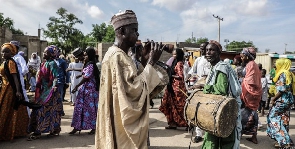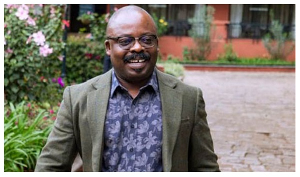It is believed that the Kanuri people are the descendants of the Sayfawa dynasty of the Kanem empire. In the 14th century, they were compelled to resettle southwest of Lake Chad when Bulala invaded their state.
The Kanuri people who are also referred to as Bornu can be found in Nigeria, Cameroon, Niger and Chad. Collectively, they are known as Sau — reportedly a race of giants.
Many of the Kanuri can be found in the Borno province of northeastern Nigeria. The Kanuri people are one of the most dominant groups in the province, according to Pulse Nigeria. Prior to the fall of the dynasty, the Kanuri were one of the most powerful states in the Sudanese enclave. They controlled the trans-Saharan trade route through the Bilma oasis to Libya.
The Kanuri witnessed the height of their success in the 16th century. The Kanuri ascribe to the Islamic faith and follow the Malikite code of Islamic law. They traded mainly in millet to run their economy. Today, many Kanuri farm peanuts which have become a significant part of their array of cash crops, according to Britannica.
One characteristic of the Kanuri is that they reside often in settled villages and towns while farming on the sandy soil in the countryside. Kanuri who are entrepreneurs by default export cowhide and goatskin in large quantities.
Another distinct feature of the Kanuri is how segmented their social structure is. The political and religious head of all the Kanuri society is the Shehu. He is from the royal lineage. The Shehu is closely followed by the class of commoners. Prior to the arrival of the Europeans, the Kanuri had their class of slaves, despite their social standing, who could rise to befitting status in the court.
They are followed by the kin groups who are among most other African peoples. The Kanuri are polygynous. A family consists of the husband, wife, and children or the polygynous family living in a compound. Their buildings are made of mud bricks which are designed in a square or round shape with flat or thatched roofs.
The Kanuri people are considered one of the most respected groups in the Northern part of Nigeria. Their culture has been well preserved over centuries. Their well-known tattoo is referred to as “lalle” in the Hausa language. Their men consider themselves high and do not stoop low even in their trying moments. They are not known to beg for alms.
The dance of Kanuri society is fascinating with the steps and rhythms catching the eye of a first-time spectator. Their language, Kanuri, belongs to the Saharan branch of the Nilo-Saharan family. The language consists of two main dialects, Manga Kanuri and Yerwa Kanuri, spoken in central Africa by more than 5 million people at the turn of the 21st century, as stated by Britannica.
Africa News of Friday, 27 January 2023
Source: face2faceafrica.com

















